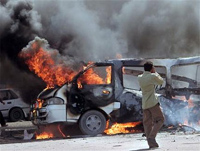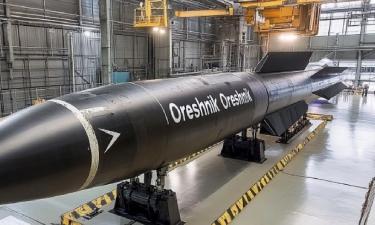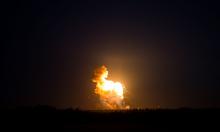Sunnis want Americans to stay in Iraq
The situation in Iraq has changed dramatically since the days of American invasion. Today more and more Iraqis see Americans as allies, not enemies.

Just a year ago, Sunnis were the driving force behind the calls for immediate withdrawal of U.S. troops. (The Chronicle agreed not to identify the man and some other Iraqis interviewed for this story to protect their safety.) But since the Feb. 22 bombing of the revered Shiite Askariya Shrine in Samarra , the dramatic escalation in sectarian violence has given Sunnis an enemy to loathe more than the Americans -- Iraqi police, who are mostly Shiite.
Sunnis say militias affiliated with Shiite political parties have infiltrated the police and are using their status to kidnap, torture and kill Sunni civilians. Shiite officials have denied the accusations.
The interim head of the Interior Ministry -- which has authority over police forces -- was a Shiite, and control of the agency is so controversial that the selection of a permanent minister has been postponed by the coalition government that took office Saturday.
"Calls by the Sunnis for the Americans to stay and protect them from the Shiites, and calls by the Shiites for the Americans to leave, is a complete reversal," said Joost Hiltermann, an expert on Iraq at the International Crisis Group in Amman , Jordan . "Psychologically, something is broken."
At the beginning of the war, when a vicious Sunni-driven insurgency was beginning to take hold, U.S. forces would have been relieved to hear such a vote of confidence. But today, the military is trying to replace U.S. units that patrol Baghdad 's streets with Iraqi police battalions in hope that this will allow U.S. troops to withdraw from the country.
The deep-seated Sunni distrust of Shiite police could present a difficulty for the U.S. plan to let the police take over in Baghdad , particularly in the volatile western neighborhoods where Sunnis and Shiites live side by side in the maze of narrow, dusty streets.
In Ghazaliya, a predominantly Sunni part of Baghdad just north of Amariya, the police presence is currently limited to a small police station and a couple of highway checkpoints. U.S. soldiers from the 1-87 patrol the streets daily. But Iraqi police units are scheduled to start taking over most of the patrols this week, and residents say they are not happy.
Introducing police patrols in Ghazaliya will "mean that all the effort we have made with you, all of our cooperation, will go to waste," Rawi told the U.S. soldiers emphatically. "Who puts roadside bombs on the road? The police themselves. If a Sunni officer is killed between two policemen and both of the policemen are Shia, who killed him? The police. And who carries out all the kidnappings? The police."
It is difficult to know for sure who is behind most of the kidnappings and killings that Rawi and other Sunnis blame on Iraqi police. Anyone can buy a full Iraqi police uniform on the black marketforless than $15, and any of the tens of thousands of members of armed militias, private security companies and criminal gangs roaming the streets can pose as a police officer.
In this confusion, Sunnis in western Baghdad find it safer not to trust anyone wearing the blue police uniform.
"Terrorists sometimes dress like Iraqi police officers and kill and kidnap people," said one Sunni man guarding an Amariya house whose owners had left for Egypt last week to escape the violence. Three people were found killed, execution-style, in his street last week, he said. "Some of them are really Iraqi police. Some Iraqi police might have good intentions, but I can't trust them because they might be bad."
"They are ignorant, they come from other areas, they treat doctors and professors like ordinary people," an English teacher in Amariya said of the police. "Iraqi people prefer Americans to the police."
"I hear that about 10 or 20 times a day," said 1-87 battalion's 2nd Lt. Will Shields, 23, from Columbia , Md.
Iraqi police officers say such hostility sets hurdles for their work in western Baghdad , where elusive assailants kill civilians weekly, often in broad daylight.
"I hate my job," said one Iraqi police officer, who loitered near a small car-parts shop in front of the Ghazaliya police station. "We patrol, and after we're gone, they come and kill people. We do our best. People in Ghazaliya and Amariya don't respect the Iraqi police because there is a conflict between Sunni and Shia. (It is) very difficult to work here."
It will take time for the police to regain the confidence of the Sunnis, said Lt. Col. Bill Burleson, the 1-87 commander.
"This is a country that has been at war for three years," said Burleson, a 40-year-old from Williamsburg , Va. "In many cases you have to gain trust in government institutions."
Burleson said the Iraqi police force will work side by side with U.S. patrols for the first several months, "in order to increase the trust and confidence of the local populace."
The U.S. military, whose troops sometimes patrol side by side with the Iraqis, provides air and communications support to the Iraqi police, while civilian instructors from the United States teach them police techniques.
But for some Sunnis, a constant presence of any security force will be a welcome change.
" U.S. Army, Iraqi army, Iraqi police -- anyone would be good," said one man in Amariya. He said five families moved out of his affluent street last week alone, fleeing the violence. On Tuesday, he said, gunmen killed a woman in his street, apparently because she was driving a car.
"Americans come here, and then there is no killing. As soon as American go away -- killing everywhere," he said.
Source: sfgate.com
Prepared by Alexander Timoshik
Pravda.ru
Subscribe to Pravda.Ru Telegram channel, Facebook, RSS!




